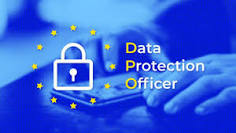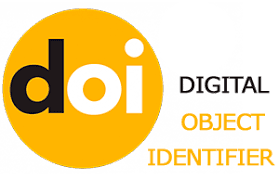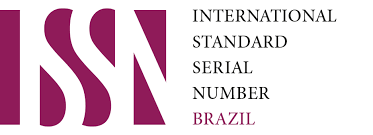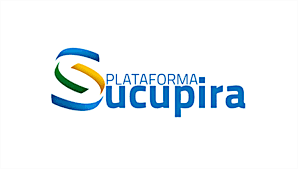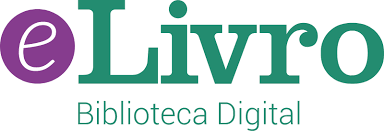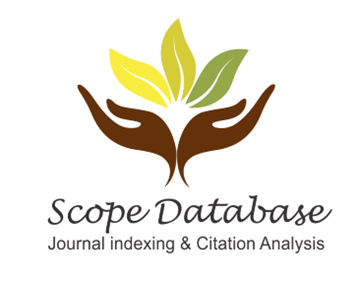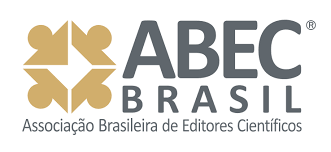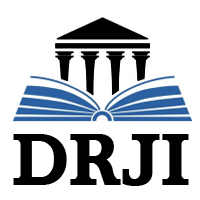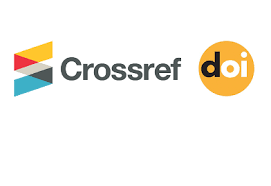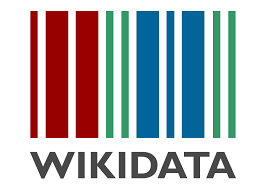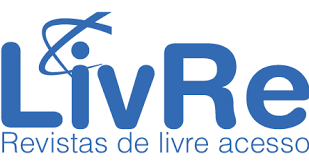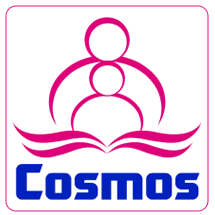Política de Ética
Esta declaración se basa en las recomendaciones de buenas prácticas de COPE para directores de revistas.
La revista está comprometida con la ética, las buenas costumbres y la calidad de sus publicaciones. Se esperan normas de comportamiento ético para todos los actores implicados en el proceso: el autor, el editor, los revisores, el bibliotecario, el abogado, el periodista, el maquetador, el I.T., el D.P.O y el redactor jefe.
Ética de la investigación
Investigación con seres humanos
Las investigaciones en las que participen seres humanos, material humano, tejidos humanos o datos humanos deben declarar que las investigaciones se han llevado a cabo siguiendo las normas de la Declaración de Helsinki de 1975. Como mínimo, debe declararse en la sección una declaración que incluya el código de identificación del proyecto, la fecha de aprobación del CEI y el nombre del comité de ética o de la junta de revisión institucional. ( https://www.wma.net/what -we-do/medical-ethics/declaration-of-helsinki/ )
Estudios no intervencionistas: encuestas, cuestionarios, encuestas en redes sociales, todos los participantes deben ser plenamente informados si se garantiza el anonimato, por qué se realiza la investigación, cómo se utilizarán sus datos y si existen riesgos asociados. Como en toda investigación con seres humanos, antes de realizar el estudio debe obtenerse la aprobación ética de un comité de ética apropiado.
Debe obtenerse el consentimiento informado por escrito de los pacientes participantes para su publicación. Deben describirse los datos de los participantes individuales, pero no es necesario incluir información privada que identifique a los participantes, a menos que los materiales identificables sean relevantes para la investigación, por ejemplo, fotografías de los rostros de los participantes que muestren un síntoma específico. Las iniciales de los pacientes u otros identificadores personales no deben aparecer en ninguna imagen. Para los manuscritos que incluyan detalles de casos, información personal y/o imágenes de pacientes, los autores deben obtener el consentimiento informado firmado por los pacientes antes de enviarlos a la revista. Los datos de los pacientes deben anonimizarse en la medida de lo posible, por ejemplo, no mencionar edad, etnia u ocupación específicas cuando no sean relevantes para las conclusiones. Los editores se reservan el derecho de rechazar cualquier presentación que no cumpla estos requisitos.
Si el estudio informa sobre una investigación en la que participan grupos vulnerables, podrá realizarse una comprobación adicional. El manuscrito presentado será revisado por la redacción y deberán aportarse las pruebas documentales que se soliciten. Además, cuando los estudios describan grupos por raza, etnia, sexo, discapacidad, enfermedad, etc., deberá indicarse claramente en el artículo la explicación de por qué fue necesaria esta categorización.
Deberes de los editores:
- Decisión de publicación: El director de la revista es responsable de decidir cuáles de los artículos presentados a la revista deben enviarse para su revisión a doble ciego y luego, si se aprueban, para su publicación. El director se guía por las políticas del consejo editorial de la revista y está limitado por los requisitos legales vigentes en materia de difamación, infracción de los derechos de autor y plagio. El director debe consultar al consejo editorial o a los revisores a la hora de tomar sus decisiones.
- Juego limpio: El director evaluará los manuscritos por su contenido intelectual sin tener en cuenta la raza, el sexo, la orientación sexual, las creencias religiosas, el origen étnico, la ciudadanía o la filosofía política de los autores.
- Confidencialidad: El director y cualquier equipo editorial no deben revelar ninguna información sobre un manuscrito presentado a nadie que no sea el autor correspondiente, los revisores, los revisores potenciales, otros asesores editoriales y el director, según proceda.
- Divulgación y conflictos de intereses: El director no debe utilizar información no publicada en su propia investigación sin el consentimiento expreso por escrito del autor. El editor debe abstenerse de considerar manuscritos en los que tenga conflictos de intereses resultantes de relaciones o conexiones competitivas, de colaboración o de otro tipo con cualquiera de los autores, empresas o posiblemente instituciones relacionadas con los artículos.
Atribuciones de los revisores:
- Contribución a la decisión editorial: la revisión por pares ayuda al editor a tomar decisiones editoriales y, a través de las comunicaciones editoriales con el autor, también puede ayudar al autor a mejorar el artículo.
- Puntualidad: todo revisor seleccionado que se considere no cualificado para revisar la investigación que se expone en un manuscrito o que sepa que la revisión inmediata será imposible debe notificarlo al director y retirarse del proceso de revisión.
- Confidencialidad: Todos los manuscritos recibidos para revisión deben tratarse como documentos confidenciales. No deben mostrarse ni comentarse con otras personas.
- Normas de objetividad: las revisiones deben realizarse de forma objetiva y los revisores deben expresar sus opiniones claramente con argumentos que las respalden.
- Reconocimiento de fuentes: los revisores deben identificar los trabajos publicados relevantes que no hayan sido citados por los autores. El revisor también debe llamar la atención del editor sobre cualquier similitud sustancial o solapamiento entre el manuscrito en consideración y cualquier otro trabajo publicado del que tenga conocimiento personal.
- Divulgación y conflictos de intereses: La información privilegiada o las ideas obtenidas a través de la revisión por pares deben mantenerse confidenciales y no deben utilizarse para beneficio personal. Los revisores no deben considerar manuscritos en los que tengan conflictos de intereses derivados de relaciones o conexiones competitivas, de colaboración o de otro tipo con cualquiera de los autores, empresas o instituciones vinculadas a los artículos.
Obligaciones de los autores:
- Normas de presentación de informes: Los autores de informes de investigación original deben proporcionar una descripción precisa del trabajo realizado, así como una discusión objetiva de su importancia. Los datos subyacentes deben representarse con exactitud en el artículo. Un artículo debe contener suficientes detalles y referencias para permitir que otros reproduzcan el trabajo. Las declaraciones fraudulentas o intencionadamente inexactas constituyen un comportamiento poco ético y son inaceptables.
- Originalidad y plagio: Los autores deben asegurarse de que han escrito un trabajo totalmente original y, si han utilizado el trabajo y/o las palabras de otros, de que éste ha sido debidamente citado. El plagio en todas sus formas constituye un comportamiento editorial poco ético y es inaceptable.
- Publicación múltiple, redundante o simultánea: En general, un autor no debe publicar manuscritos que describan esencialmente la misma investigación en más de una revista o publicación primaria. Presentar el mismo manuscrito a más de una revista simultáneamente y/o publicar el mismo artículo en diferentes revistas constituye un comportamiento de publicación poco ético y es inaceptable.
- Reconocimiento de fuentes: Siempre debe reconocerse debidamente el trabajo de otros. Los autores deben citar las publicaciones que hayan influido en la determinación de la naturaleza del trabajo divulgado. La información obtenida en privado, como en conversaciones, correspondencia o discusiones con terceros, no debe utilizarse ni divulgarse sin el permiso explícito por escrito de la fuente. La información obtenida en el curso de servicios confidenciales, como la revisión de manuscritos o la solicitud de subvenciones, no debe utilizarse sin el permiso explícito por escrito del autor del trabajo implicado en dichos servicios.
- Autoría del artículo: La autoría debe limitarse a quienes hayan contribuido de forma significativa a la concepción, diseño, ejecución o interpretación del estudio presentado. Todos aquellos que hayan realizado contribuciones significativas deberán figurar como coautores. Cuando haya otras personas que hayan participado en determinados aspectos sustantivos del proyecto de investigación, deberán ser reconocidas o enumeradas como colaboradores. El autor de correspondencia debe asegurarse de que todos los coautores apropiados y ninguno inapropiado figuren en el artículo, y de que todos los coautores hayan visto y aprobado la versión final del artículo y aceptado presentarlo para su publicación.
- Revelación y conflictos de intereses: todos los autores deben revelar en su manuscrito cualquier conflicto de intereses financiero o de otro tipo que pudiera interpretarse que influye en los resultados o la interpretación de su manuscrito. Deben revelarse todas las fuentes de apoyo financiero al proyecto.
- Errores fundamentales en el trabajo publicado: cuando un autor descubre un error o inexactitud importante en su propio trabajo publicado, tiene la obligación de notificarlo inmediatamente al director de la revista o al editor y de cooperar con el director para retractarse o corregir el artículo.





